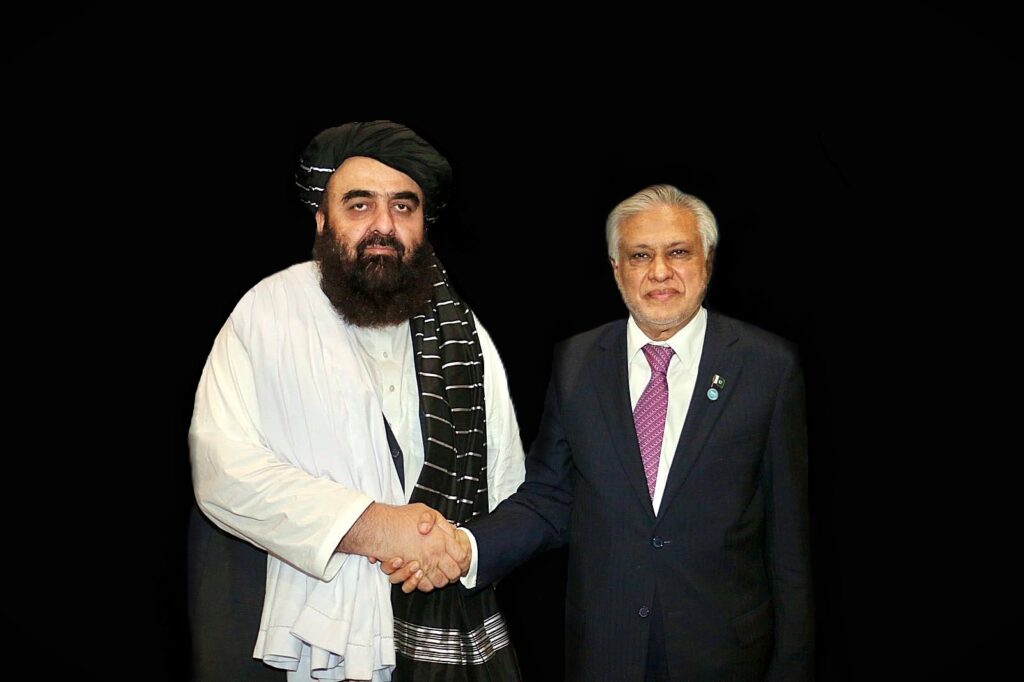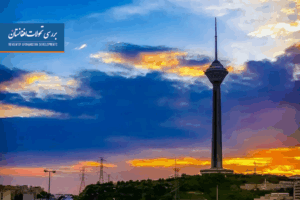Review of Afghanistan developments
The connection between Pakistan and the Afghan Taliban has consistently been intricate, unstable, and multifaceted. Following the Taliban’s collapse in 2001, Islamabad accommodated Taliban factions and created the environment necessary for their resurgence. Nevertheless, once the Taliban regained authority, the dynamics between the two parties soured. The primary cause of the strain in relations between the Taliban administration and Pakistan stemmed from Islamabad’s assertion regarding the existence of the Tehreek-e-Taliban Pakistan (TTP) on Afghan territory and the Taliban’s failure to manage this Group.
Following approximately two years of strained relations and Pakistan’s allegations against the Taliban administration, recent months have revealed indications of a shift in Pakistan’s policy towards the Taliban government. Official visits, border agreements, initiatives to alleviate security tensions, favorable remarks from officials of the Pakistani Foreign Ministry, and collaboration in various sectors suggest a transformation in the dynamics between the two parties. The signing of the Trans-Afghan Railway Feasibility Study Agreement, attended by the foreign ministers of Pakistan, Uzbekistan, and Afghanistan in Kabul; formal discussions regarding the TTP; a pledge to thwart terrorist activities between the nations; an official invitation extended to Amir Khan Muttaqi, the Taliban government’s foreign minister, to visit Pakistan; a rise in trade between the two countries; an accord to lower tariffs on agricultural goods, along with an agreement to expand the CPEC project into Afghanistan with China’s backing, all signify the strengthening of relations stemming from Pakistan’s policy shift towards the Taliban government.
This note analyzes the factors that contributed to the shift in Pakistan’s policy regarding the Taliban government and explores the reasons behind the Taliban’s acceptance of this change in Pakistan’s policy.
Reasons for changing in Pakistan’s policy towards the Taliban government
In the years 2022 and 2023, Pakistan endeavored to compel the Taliban to address the Tehreek-e-Taliban Pakistan (TTP) through military interventions and border pressures. However, this strategy not only proved ineffective but also resulted in an unprecedented escalation of insecurity within Pakistan. The rise in TTP assaults, an increase in suicide bombings, the instability in the provinces of Khyber Pakhtunkhwa and Balochistan, along with economic strains, led the Pakistani authorities and establishment to realize that confronting these threats necessitated direct political engagement with the Taliban. In essence, the failure of the military and security pressure policy directed at the Taliban government stands as the primary reason for the shift in Pakistan’s policy towards the Taliban government.
The geopolitical rivalry between India and Pakistan has consistently been a significant factor in influencing the dynamics between Islamabad and Kabul. Pakistan has long been apprehensive about the growing influence of its regional adversaries, particularly India, in Afghanistan. Given the Taliban’s closeness to New Delhi, Islamabad recognized the threat and determined that exerting pressure on the Taliban government to fulfill its objectives would likely backfire, potentially sidelining Pakistan.
The increase in diplomatic engagements among Central Asian nations and Kabul, the in-depth discussions regarding transit and energy corridors linking Central Asia with South Asia, the advancement of railway and trade partnerships between Iran and Afghanistan, Russia’s official recognition of the Taliban government, and China’s significant initiatives to enhance the China-Pakistan Economic Corridor to Afghanistan have influenced the evolution of Pakistan’s policy towards the Taliban government.
The Taliban government’s motivations for engaging with Pakistan
The foreign policy of the Taliban government aims to interact with other countries to achieve legitimacy and recognition. However, under pressure from Pakistan, Kabul has had to implement a more aggressive foreign policy towards this nation. The Taliban government is acutely aware that engaging with Pakistan, a pivotal player in the Afghan situation, presents a chance to escape isolation and secure implicit support from the region. Should the Kabul-Islamabad Relations Group be established, relations with Beijing will advance beyond their current status.
The necessity of trade routes has consistently compelled Afghan governments to interact with their neighboring countries. In light of international sanctions, the Torkham border and Gwadar port in Pakistan represent some of the limited active trade routes available to the Taliban government. For the Taliban, economic collaboration with Pakistan is essential, and Kabul recognizes its interests in fostering relations with the Pakistani government.
Containing of shared threats is as significant in the interactions between countries as shared interests. It appears that the ISIS-K threat originating from Pakistani territory and the TTP threat from Afghan territory, serving as a form of mutual pressure, have not been advantageous for either party. The Taliban government has come to understand that engaging with neighboring countries, particularly Pakistan, can facilitate the establishment of common security mechanisms.
In this context, the Taliban government requires a degree of stability both within and in the vicinity of Afghanistan’s borders to uphold its sovereignty. Mitigating tensions with Pakistan may contribute to Afghanistan’s internal security strategy.

Future outlook
While there are indications of a shift in Pakistan’s policy towards the Taliban regime, deep-rooted mistrust and ongoing challenges between the two parties continue to exist. Even though senior Pakistani officials have halted their verbal assaults, many of them were accusing the Taliban of fostering terrorism until just a month ago. The matter concerning the Tehreek-e-Taliban Pakistan (TTP) continues to be a significant point of contention. The Taliban government does not acknowledge the TTP as a threat, whereas Islamabad demands the total eradication of the group.
The Durand Line, akin to a thorn in the flesh, remains a significant source of friction in the relationship between the two nations. It serves as the fundamental cause of numerous border disputes. The compelled repatriation of hundreds of thousands of Afghan refugees from Pakistan has strained the relations between both parties. The Taliban government deems this action unethical, whereas Pakistan views it as a component of its security strategy.
The political diversity present in Pakistan has consistently rendered the country’s strategies susceptible to vulnerabilities. The existing disparities among the military, the government, and the political parties in Pakistan’s policy regarding the Taliban. A shift in the Pakistani government could potentially lead to significant alterations in policies.
Related articles
The Ups and Downs of Pakistan-Taliban Relations
Sadiq Khan’s “important” mission in Kabul
Conclusion
change in approach towards the Taliban regime, along with the gradual improvement of relations between Kabul and Islamabad, stems from a mix of political realism, security requirements, economic pressures, and geopolitical factors. The new Pakistan’s policy regarding the Taliban is primarily driven by security necessities and the shortcomings of recent confrontational strategies, rather than by ideological motivations or ongoing support. The Taliban government has also come to understand that it cannot secure long-term survival and stability without engaging with regional powers such as Pakistan. Nevertheless, the durability of this rapprochement hinges on various factors, including the resolution of the TTP issue, the management of the refugee crisis, and the capacity of both parties to move past historical mistrust.
Follow us on social media:

















